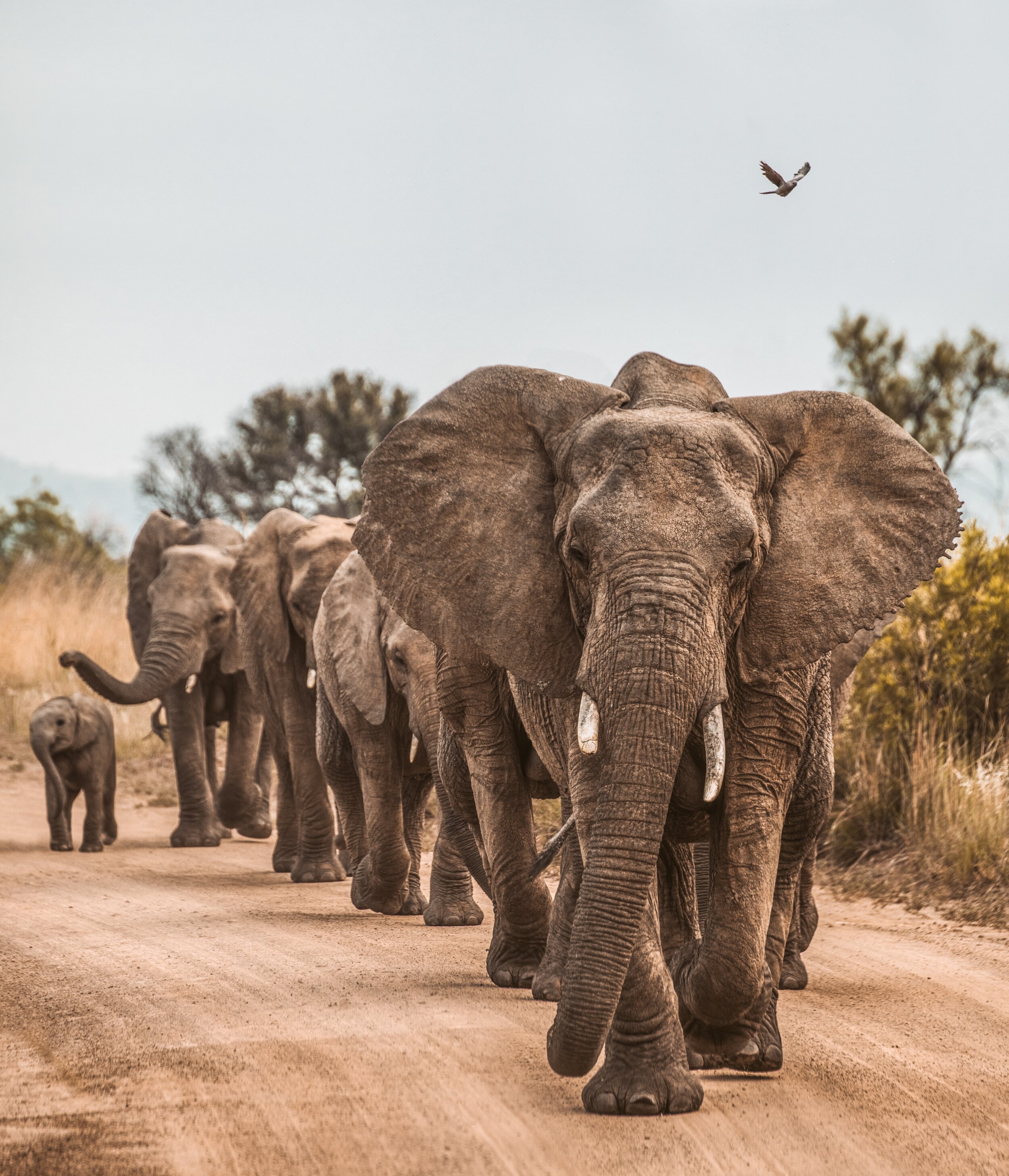Save Elephants, Save The Environment
When We Save Elephants, We Save the Environment
Scientists say there is a connection between the extinction of a major species and our survival as humans, and warn that we are experiencing the beginning of earth's sixth mass biological extinction. There have been five mass extinctions over the past billion years, where the loss of major species caused a dramatically reduced diversity of life. The most devastating extinction occurred when an asteroid wiped out the dinosaurs, but the next predicted extinction is humanmade as humans cause the destruction of major species through habitat destruction, environmental catastrophe, or in the case of elephants, through poaching.
Elephants are at the heart of this sixth extinction because they are a keystone species, which means that an entire ecosystem depends on their well-being. Without elephants, many trees that depend on them for seed dispersal will disappear. Trees help prevent soil erosion. Without trees, soil washes into the rivers and contributes to the loss of major water supplies and destroys croplands. Soil erosion can destroy an entire civilization, people, and wildlife. The loss of trees also accelerates global warming and destroys biodiversity creating a barren continent. Trees absorb carbon dioxide, sulfur dioxide, and carbon monoxide from the air and release oxygen. One large tree can supply a day's supply of oxygen for four people.
Elephants also help create grassy meadows and habitat for herbivores on a very large scale. Carnivores depend on herbivores for survival, and scavengers’ survival depends on carnivores. Lions, leopards, impalas, zebras, giraffes, and all other wildlife depend on the habitat elephants create. Africa is a delicate balance between species. Remove elephants, and an entire ecosystem fails when herbivores no longer have places to graze, and carnivores starve to death. For the first time in our planet's history, humankind contributes to a mass biological extinction.
In his book The Sixth Extinction, Kenyan conservationist and politician, Richard Leakey writes, "In the decade up to 1989, the African elephant populations halved, from about 1.3 million into 625,000 during a time when the ivory trade was supposed to be under control." Since 2010, poaching is responsible for a two-percent decline per year in elephant populations. The Great Elephant Census in 2016, showed a decline of 30 percent in African savanna elephant populations in 15 of the 18 countries surveyed. Every day poachers slaughter another 100 African elephants for their tusks. At this rate, by 2028, African elephants will be extinct. Today, there are less than 500,000 African elephants.
But there is good news. Public awareness of the elephant's plight makes big headlines today. More of us understand how critical elephants are for our survival and are working together to rescue and raise orphaned babies and protect elephants and find creative ways to protect crops and save elephants. Anti-poaching patrols use detection dogs to find poachers and collect snares that kill any animal that steps into them, including elephants. You can help. Donations to Africa Hope Fund go directly to nonprofits where every penny they receive goes directly to their mission. Watch for legislation you can help support, like banning elephants in circuses or help groups working on transferring captive elephants to sanctuaries where they can live a natural life. Thank You.
Written by AHF Board Alum, Patricia Cole
An Africa Hope Fund board member for 7 years, Pat is a writer and a conservation activist. After traveling to Zambia, she became dedicated to helping Africa Hope Fund provide education to the next generation of Africans and ensure their future by protecting wildlife.
Enjoy reading this Elephant Blog post? Help support our future posts by becoming a supporter!

